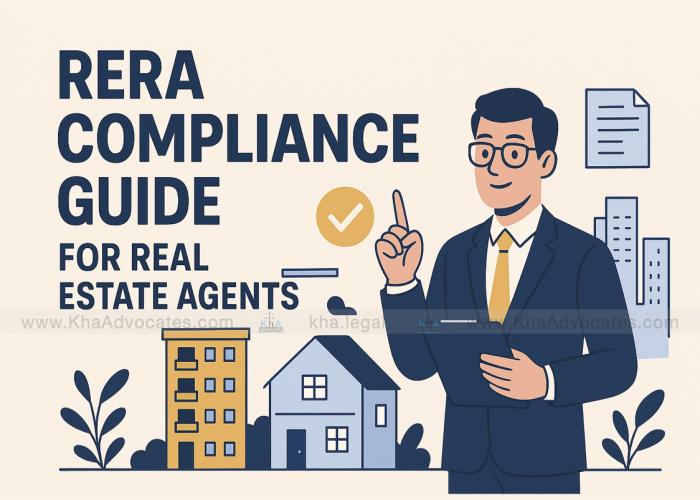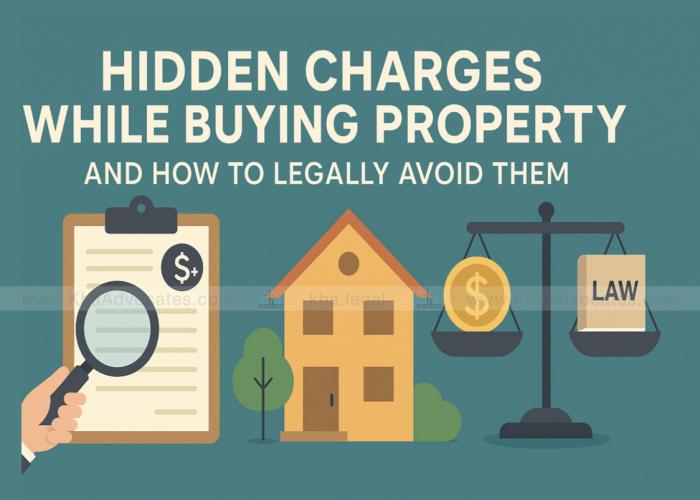
Published on: August 13, 2025
If you’re a real estate agent with less than three years of experience, you’ve probably heard the term RERA thrown around in conversations, training programs, and even client meetings. The Real Estate (Regulation and Development) Act, 2016 was introduced to bring transparency, accountability, and fairness to India’s real estate sector.
For agents, RERA is not just a legal formality—it’s your license to operate, build trust, and close deals confidently. In fact, RERA compliance can be your biggest selling point when winning over clients.
This guide will walk you through everything you need to know about RERA compliance, with practical tips, legal insights, and real-world advice tailored for agents like you.
Makes registration mandatory to operate legally.
Requires disclosure of property details before selling.
Ensures ethical dealing with both buyers and developers.
Failing to comply can result in hefty penalties or even being barred from business. On the flip side, RERA compliance can boost your credibility and help you close more sales.
Why? It’s the law. You cannot facilitate property sales without RERA registration.
How? Visit your state’s RERA website, fill out the application form, upload required documents, and pay the registration fee.
Tip: Always keep your registration number handy—it builds instant trust with clients.
Each state has its own RERA authority and rules. For example, WBRERA in West Bengal, etc.
Action Step: Bookmark your state’s RERA website and check for rule updates regularly.
Benefit: Staying updated means you won’t accidentally violate new regulations.
Selling an unregistered project is a major violation. Always check the RERA project registration number before marketing or selling.
Tip: Use the RERA portal to verify project details—buyers love agents who show them official proof.
Under RERA, you must share all relevant details about a property—pricing, possession timelines, approvals, and amenities.
Best Practice: Maintain a property fact sheet for every listing.
RERA requires agents to keep proper records of transactions.
Why? These can protect you in case of disputes.
Pro Tip: Digitize your paperwork using cloud storage—it’s safer and faster to retrieve.
Rule: Do not advertise unapproved layouts, amenities, or false possession dates.
Example: If possession is 2027, don’t write “Ready in 2 Years” unless confirmed.
RERA registrations have an expiry date—usually 5 years, but it varies by state.
Tip: Set calendar reminders for renewal at least 3 months in advance.
RERA recognizes agents as intermediaries, not salespeople for one party.
Ethics Tip: Always ensure fairness between the buyer and seller.
The law is evolving. Attend RERA workshops, webinars, or legal training to keep learning.
Benefit: Your knowledge will set you apart from other new agents.
If you’re new, navigating compliance can be overwhelming. Working with a law firm specializing in RERA can save you from costly mistakes and even speed up your deal closures.
Skipping registration to avoid fees.
Not verifying projects before selling.
Making verbal promises that can’t be kept.
Ignoring renewal dates for registration.
Not keeping proper documentation of transactions.
Avoiding these mistakes will keep your record clean and your reputation strong.
Builds trust – Buyers feel safer dealing with registered agents.
Differentiates you – Many agents still operate without full compliance.
Protects you legally – Compliance shields you from penalties and lawsuits.
Boosts referrals – Happy, protected clients recommend you to others.
Q1. Do I need RERA registration if I only deal in rentals?
A: No, RERA applies to property sales, not rentals. But check your state’s rules for exceptions.
Q2. How much does RERA registration cost?
A: Fees vary by state—usually between ₹25,000 for individuals.
Q3. Can I operate in multiple states with one RERA license?
A: No, you need separate registration for each state.
Q4. What happens if I sell an unregistered project?
A: You can face heavy fines or even imprisonment. Always verify before selling.
Q5. How long does RERA registration take?
A: Usually 15–30 days, depending on state processing times.
As a new agent, it’s tempting to focus only on closing deals quickly, but in today’s regulated market, compliance is your competitive edge. Buyers and developers want to work with agents they can trust—and RERA compliance is proof of your professionalism.
Don’t see RERA as a hurdle; see it as a business tool that helps you stand out in a crowded market.
At KHA Advocates, we act as your legal mentor—guiding you through RERA registration, project verification, agreement vetting, and compliance training.
Whether you’re a new broker or a growing agency, our legal support ensures you operate 100% within the law while building a trustworthy brand.
📞 Call us today at 9832-555-666 or 📧 email us at contact@khaadvocates.in to start your RERA-compliant journey.

